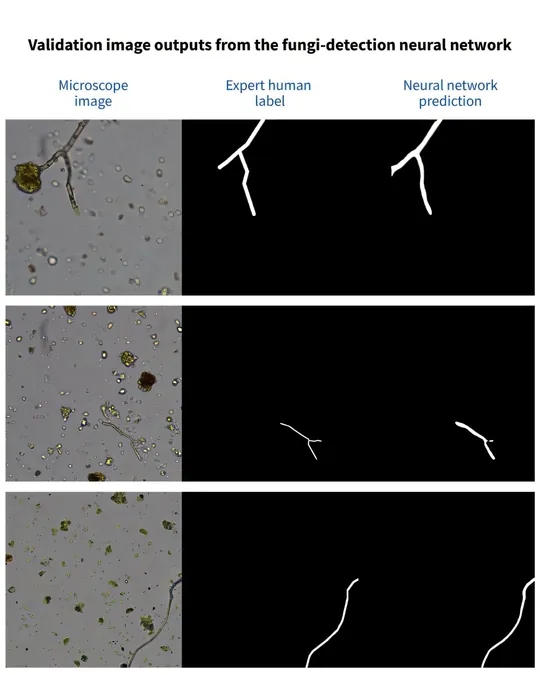
Revolutionizing Soil Health: AI and Classic Microscopy Unite!
2025-07-06
Author: Wei Ling
A Fresh Take on Soil Testing
In a groundbreaking development, researchers from The University of Texas at San Antonio are breathing new life into traditional microscopy. They're harnessing the power of artificial intelligence to create a soil health testing system that's faster, cheaper, and more accessible for farmers worldwide.
Why Soil Fungi Matter
Determining the variety and quantity of fungi in soil is crucial because these organisms play a key role in nutrient cycling, water retention, and plant growth. Understanding soil fungi helps farmers optimize crop production and adopt sustainable practices, offering insights into effective soil management strategies such as fertilizer use and irrigation.
The Limitations of Existing Methods
While modern soil testing methods like DNA analysis and phospholipid fatty acid testing are powerful, they often come with hefty price tags or focus oversimplistically on chemical composition, neglecting the biological intricacies of soil ecosystems. Alec Graves, a lead researcher, highlights the gap in access to comprehensive soil analysis, particularly for farmers who need these insights the most.
Innovative AI-Driven Solutions
In an effort to democratize soil testing, the research team has developed a low-cost solution that minimizes the need for extensive expertise and expensive lab equipment. By integrating machine learning with optical microscopy, they aim to provide a detailed view of soil biology.
Transforming Microscopy with Machine Learning
The team has created an innovative machine learning algorithm that detects and quantifies fungal biomass in soil samples. Using thousands of images gathered from soils across South Central Texas, their software is optimized for affordable microscopes that are commonly found in schools. The process involves analyzing video footage of soil samples, breaking it into images, and employing a neural network for accurate identification of fungi.
Future Plans: A Mobile Robotic Platform
Looking ahead, researchers are set to develop a mobile robotic platform that streamlines the process of soil testing by integrating sample collection, microphotography, and analysis in one device. They hope to have a fully functional prototype ready for real-world trials within the next two years.
A Game Changer for Agriculture
Led by Professor Saugata Datta, the initiative not only promises to transform how soil health is assessed but also aims to empower farmers with the knowledge needed to protect and optimize their land. With publication details of their findings on the AI algorithm expected soon, the agricultural sector is on the brink of a significant transformation!


 Brasil (PT)
Brasil (PT)
 Canada (EN)
Canada (EN)
 Chile (ES)
Chile (ES)
 Česko (CS)
Česko (CS)
 대한민국 (KO)
대한민국 (KO)
 España (ES)
España (ES)
 France (FR)
France (FR)
 Hong Kong (EN)
Hong Kong (EN)
 Italia (IT)
Italia (IT)
 日本 (JA)
日本 (JA)
 Magyarország (HU)
Magyarország (HU)
 Norge (NO)
Norge (NO)
 Polska (PL)
Polska (PL)
 Schweiz (DE)
Schweiz (DE)
 Singapore (EN)
Singapore (EN)
 Sverige (SV)
Sverige (SV)
 Suomi (FI)
Suomi (FI)
 Türkiye (TR)
Türkiye (TR)
 الإمارات العربية المتحدة (AR)
الإمارات العربية المتحدة (AR)